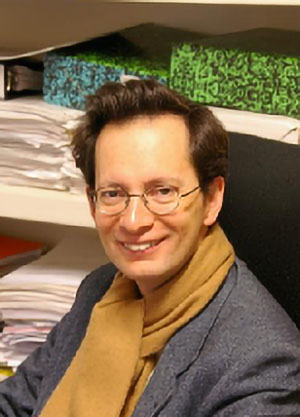USTC Astronomy Colloquium Series: 2019 Fall
THE MESSIER SURVEYOR: LIFTING THE VEIL ON THE ULTRA-LOW-SURFACE-BRIGHTNESS UNIVERSE
David Valls-Gabaud Prof.
CNRS, Observatoire de Paris
2019/11/20, 4:00pm , the 19th-floor Observatory Hall

The small-class MESSIER satellite has been designed to explore the extremely-low surface brightness universe at UV and optical wavelengths. The two driving science cases target the mildly- and highly non-linear regimes of structure formation to test two key predictions of the LCDM scenario: (1) the detection of the putative large number of galaxy satellites, and (2) the identification of baryonic filaments in the cosmic web. The science requirements imply challenging instrumentation issues which have only recently been solved. The satellite will drift scan the entire sky in 6 bands covering the 200- 1000 nm wavelength range to reach the unprecedented surface brightness levels of 34 mag/arcsec2 in the optical and 37 mag/arcsec2 in the UV. As usual when uncovering new volumes in parameter space, many important secondary science cases will also result as free by-products and will be discussed in some detail: the actual luminosity function of galaxies, the contribution and role of intracluster light, the fluctuations of the cosmological background radiation at UV and optical wavelengths, the warm molecular hydrogen content of galaxies at z=0.25, time-domain studies of supernovae, tidal disruption events and EM counterparts of gravitational wave events, the chemical enrichment of the interstellar medium through mass loss of giant stars and the accurate measure of the BAO scale at z=0.7 with over 30 million galaxies detected in Lyman-alpha at this redshift. It will provide the first space-based reference UV-optical photometric catalogue of the entire sky.
Prof. David Valls-Gabaud is the research director of CNRS (the French National Center for Scientific Research) and overseas fellow of the Churchill College at University of Cambridge. In 1990, he got his Ph.D. in astrophysics jointly from Universite de Paris and University of Cambridge. Then he was a postdoctoral fellow at Canada and the Academie des Sciences de Paris, respectively. From 1994-2011, he was the charge researcher at CNRS, where he was promoted to be research director in 2011. From 2007-2010, he was the deputy head of GEPI at Observatoire de Paris. From 2011-2014, he was senior international professor of the Chinese Academy of Sciences. Prof. Valls-Gabaud has been a member of the organizing committees for 26 international conferences, 16 as the SOC Chair. He was also on the astronomy advisory committee for the French Space Agency from 2010-2014, and was the vice president of Société Astronomique de France from 2013-2018.
 邮编:230026 ,
邮编:230026 ,  联系电话: 0551-63601861
联系电话: 0551-63601861 Email:
Email: